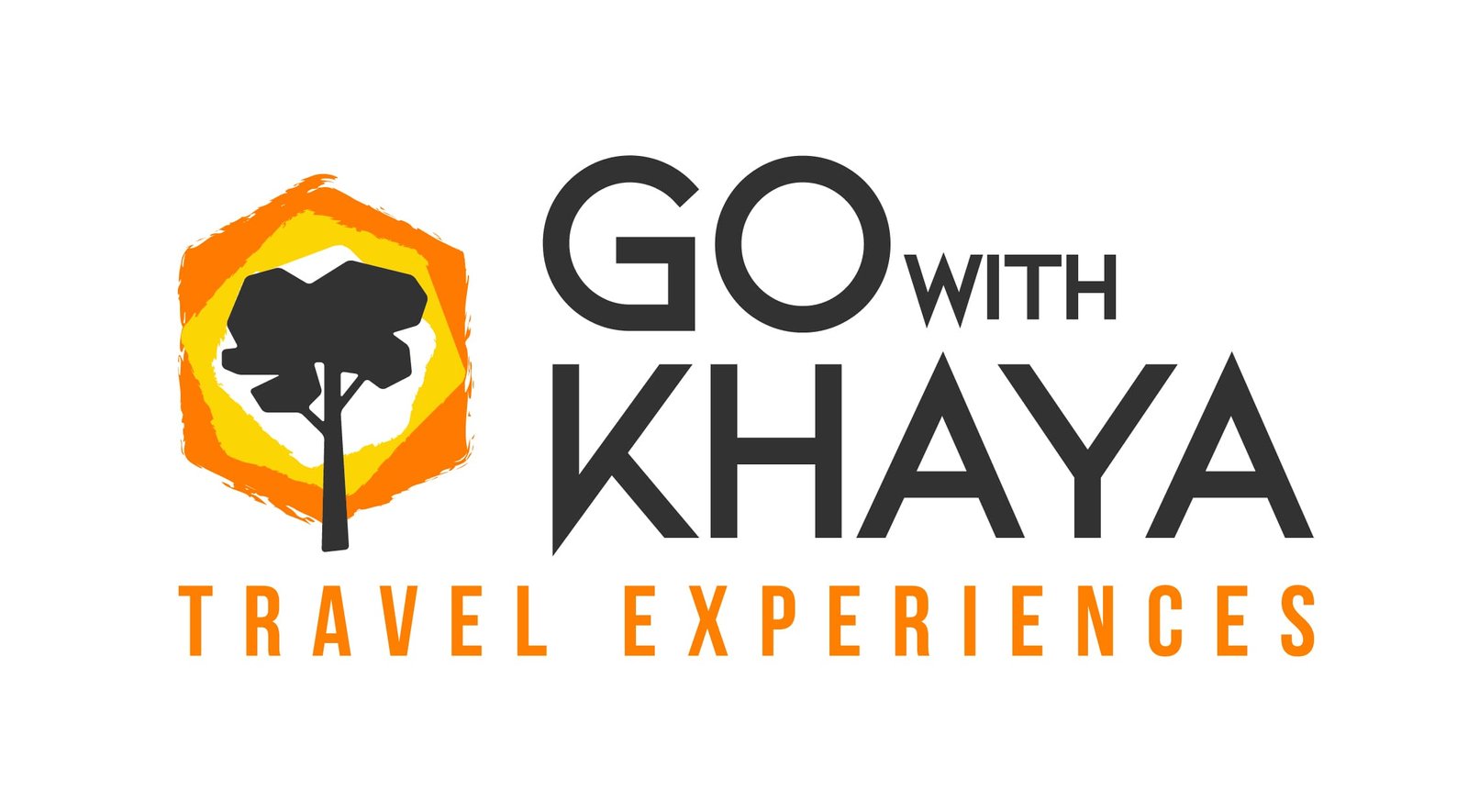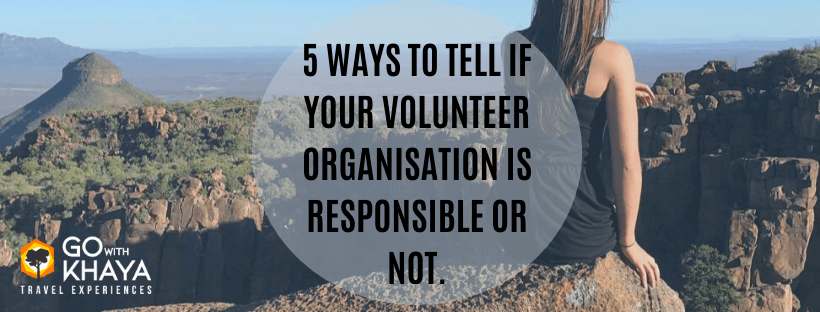It’s a dog fight out there with the vast selection of gap year and volunteer placement providers available. The amount of options and slogans being thrown around such as “cheapest volunteer placements”, “best provider”, “volunteer for free organisations” and “most ethical agency” doesn’t make it easier to choose the right provider for you.
Many providers out there do this with the best intentions, but some might hide behind these slogans with only one agenda – profiting from your will to support them and volunteer in Africa.
The benefits of arranging your volunteer work overseas with a reputable provider has been discussed extensively online, and it’s apparent that having a provider to arrange your stay can assist you to have a great experience, while projects are truly helped.
But what does it take to make a provider a good one, and what are the aspects you should keep in mind when choosing who you trust with your money and physical wellbeing? How do you determine if you are choosing the right volunteer organisation.
This subject is an ongoing discussion; as views of the right way to provide developmental aid in Africa, ethics and responsibility, the benefits of international volunteers and how we really help projects with a need, is ever changing. There is not a set answer to such questions, as different opinions and views can have positive outcomes. What I do know after working and living in Africa for the last 12 years is that there are some basics to providing well organised, balanced and responsible volunteering. Any organisation or company offering such experiences should really know the place they are sending you, and have a good support system in place at the destination to provide what it takes to makes this a success for all involved.
- SUSTAINABLE AND MEANINGFUL VOLUNTEER WORK
What is meaningful is very subjective, of course, as many people see this in different ways. Is it meaningful to work in vegetable gardens while there are enough people around that can and should do it themselves? Some might say no, others might say that working with people that have lost hope can inspire them and ignite new perspective and respect for other cultures, and that working in a garden can provide insights and lessons for both local community members as well as volunteers. Is it meaningful to assist at a crèche in the township and play with young children? Some might say this violates the safety of these children and should not be done by international volunteers, others might say that the situation is so dire that these children are in immediate need of more attention and varied activities and that volunteers actually make a huge positive difference to their wellbeing. It all really depends on your own perspective and from what angle you look at it.
Having meaningful tasks as a volunteer doesn’t mean these tasks have to have immediate visible impact and change the world – they can be tasks that provide support to the program, inspire and motivate their staff, help relieve the work load, fill the gaps left from staff shortages, and so much more that can be truly meaningful. Maybe there is no immediate visible outcome, but surely it is part of a bigger picture with long term positive outcomes and goals.
Providing tasks that are meaningful in the eyes of a volunteer is not always easy for a provider such as Khaya Volunteer Projects, as volunteers differ in motivation and capabilities, projects sometimes have different views of planning and reaching goals and to balance all those different interests can be challenging. It should, however, be the focus of any provider and volunteer placement organiser to provide tasks and activities that are as meaningful as possible, and to explain and educate volunteers that some tasks might not seem meaningful immediately, but serve a long term purpose and goals.
This should be an ongoing subject of discussion the project’s needs and shared decisions on how volunteers can be of the best assistance possible should be open to volunteer input.
2. SAFETY WHILE VOLUNTEERING ABROAD
As you put your trust in a provider and pay them to assist you to volunteer overseas during a gap year, your safety should be on top of the list of your provider. Some important questions to ask are things like who will pick you up from the airport, where you’ll be staying, is the accommodation a general backpacker’s hostel or designated volunteer accommodation or host family, and how the transport is arranged and with what vehicle. Some providers, especially some smaller ones that are based in South Africa (for example) think volunteering is a quick way of making money and cutting corners. They may not be registered properly as a company or organisation, might not have proper insurances (public liability, vehicle insurance), and are legally not equipped to provide the service they advertise.
Ask yourself the big question of “what if”? What if I get ill, what if I don’t like the project, what if the vehicle used for transport has an accident? Any good provider is prepared for the “what if’s” and provides clear rules for your safety, well maintained and properly insured vehicles, safe accommodation and a structure to fall back on when something happens that requires immediate action.
It is also required of a provider to look at the safety of the projects, the people it helps, and children that might be involved. Volunteers should be screened when working directly with children, and where needed provide police clearance certificates. Work activities should be supervised by local staff at all times and clear instructions should be given to volunteers on what is expected from them to safeguard the safety of all involved. This is easier said than done as we know from experience, but is a strong goal and ongoing effort for those providers that do this responsibly and professionally.
3. COORDINATING AND SUPERVISION
Arranging your stay comes with many challenges and responsibilities for a provider and should be focused on coordinating all aspects of your stay in a professional way.
Volunteers come in many different forms and shapes – some are highly skilled but not very proactive to do anything, others are less skilled but have huge enthusiasm, some have expectations that are unrealistic, others have difficulty sharing a house with others. There are many aspects for a provider to keep focus on – your daily work activities, social activities, contact with the projects, personal wishes and expectations, the needs of the programs, well-maintained accommodation, and so much more. It takes a truly hard-working and positive person to be a good volunteer coordinator; as just dropping a volunteer at a hostel, arranging transport, seeing them on Fridays just to get drunk (some organisations call these socials) is far from doing it the right way, I believe. It requires a designated person to communicate, observe, analyse and take action on a daily basis. We at Khaya strongly believe in having a designated Volunteer Coordinator (our awesome Samantha is the lady who keep everything under control) who is available each day and not just for a quick visit once a week. This person is incredibly important as it allows volunteers to voice concerns, share their experiences, prepare for the challenges ahead and share time with others outside of volunteer working hours, but also the person for the projects to speak to, prepare for new arrivals and evaluate the impact volunteers have on their project.
4. FACILITIES AND TRANSPORT
The reasons why most volunteers choose a provider instead of organising things themselves, are mostly practical. To arrange accommodation, transport and a good placement can be very challenging and end up costing a lot more then what you would pay with a provider. It is therefore very important that a provider offers well run, clean and safe accommodation, access to facilities such as healthcare, shopping when needed, access to internet, sufficient and nutritious meals, options for your free time, support to prepare for volunteer work activities and so much more.
Your transport should be included – especially in South Africa – for your own safety and this should be done in a well-maintained vehicle with a driver who is qualified and trained to drive you and others around. From my own experience, I have seen the accidents, damage to vehicles and at times serious injuries volunteers received, when renting a car and doing things themselves. It can provide huge freedom to have your own transport but again, ask yourself the “what if” questions. What if I have a breakdown, what if I lose my way in the township, what if somebody bumps me and I have damages? Having your own transport comes with huge freedom but also with big responsibilities if something happens. For many years we at Khaya used the format of volunteers renting their own cars and being independent, but from experience and to accommodate all involved we strongly believe that providing transport in our services is much safer and beneficial to our volunteers. It allows people without a driver’s license or the confidence of driving on the left side of the road, safe and well-organised transportation.
5. WHERE DOES THE MONEY GO WHEN YOU VOLUNTEER?
Being transparent is quite a term to use and applies to showing volunteers what they actually pay for and how that money is used. A volunteer placement provider should be open about what is included and excluded, what goes to the project (or if this is even something they include in your fee), and what percentage they keep. They should be open and honest about how close they are to a project or if they are merely an online-based travel agency, sending people all over the world but never actually visiting their projects.
Transparency doesn’t mean, however, that any provider has to give you insights into the running of their business, how much they spend on marketing to find volunteers, attending conferences to find partners or how much their staff is earning. So transparency is very important, and when you as a volunteer ask a provider where your money is going they should be able to give you a clear and honest answer of what your costs cover and how much goes where.
This article is my personal opinion after working in the intern and volunteer placement sector for the last 12 years in South Africa, Tanzania and Malawi. It doesn’t mean I have all the right answers and can dictate to others what is ethical and responsible, but it does mean that Khaya Volunteer Projects strives to discuss these subjects, learn and change our policies where possible and provide you as a volunteer the best experience possible, where all involved benefit. It is up to you to make up your own mind and choose the provider fitting for you.
See you in Africa.
Martijn
Founder of Khaya Volunteer Projects

